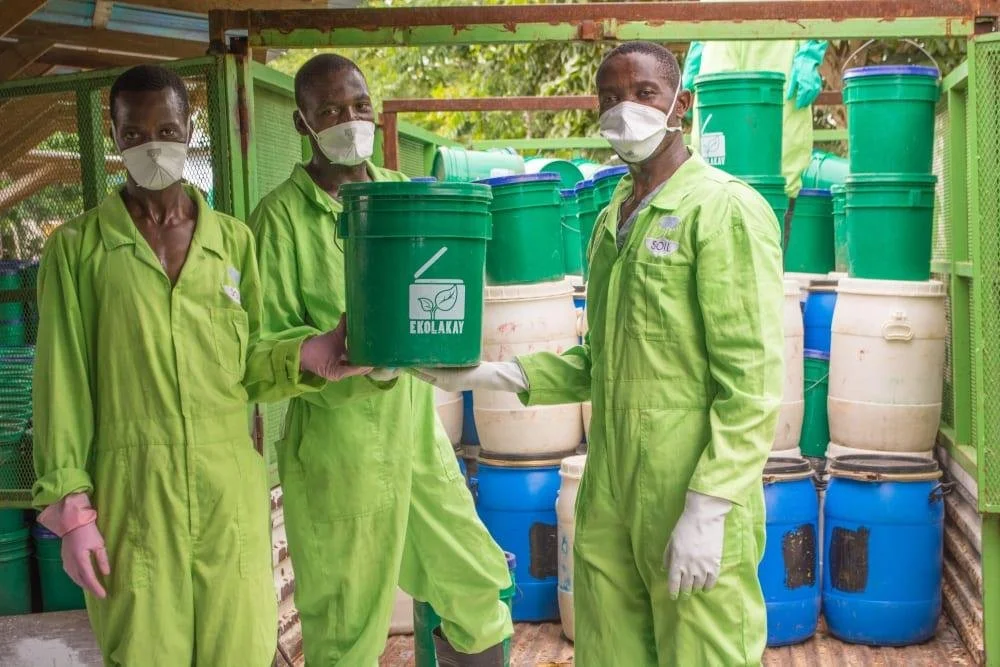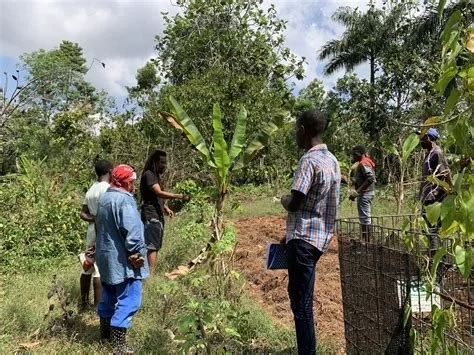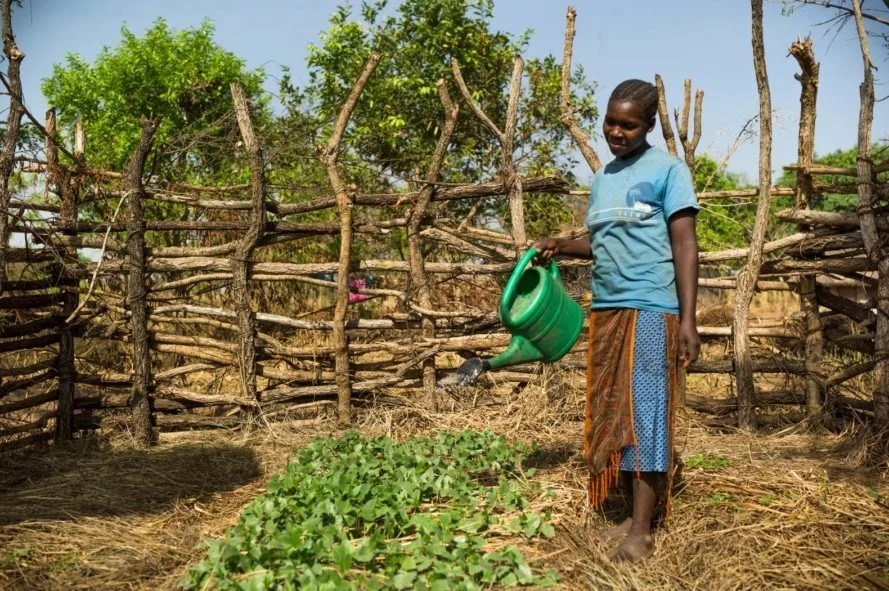As we mentioned in our last project announcement, these are critical times for philanthropic funders to come together and invest in Nature-based Solutions (NbS) with an Equity-Centered approach. Jonas Philanthropies is excited to share its latest round of grant recipients, who are taking a community-led, frontline approach to the climate crisis.
As outlined in this Jonas Philanthropies whitepaper on Nature-based Solutions, these projects focus on several Impact Areas that have been identified as key drivers in climate solutions efforts from a Nature-based lens:
Conservation hydrology (also known as Watershed Restoration; Drought Proofing) to promote tree-growing, reforestation, landscape rehydration, and ecosystem restoration.
Meeting Human Material Needs for food, fiber, medicine, health services, ecosystem services, building materials through Nature-based Solutions.
Human Health Nexus to leverage ecosystem restoration to promote improved nutrition, access to medicine, improved sanitation and access to clean air and water, reduction in risk of zoonotic disease, and a multiplicity of other health outcomes that can be accrued through a focus on ecosystem health.
Rewilding to promote large-scale efforts to restore biodiversity and ecosystem health by engaging human communities to steward core wild/wilderness areas, provide connectivity between such areas, and protect or reintroduce apex predators and highly interactive species (keystone species).
Leveraging Additional Capital (e.g., federal dollars, multilateral funding, impact investment) to expand and sustain the power of collaborative grantmaking to improve NbS outcomes.
Social Enterprise Development to support self-sustaining, community enterprise, leveraging NbS, for durable impact over time independent of continued philanthropy.
Restoring Endangered Salmon Habitat and Cultural Lifeways, California
Photo: Sawalmem
Meaning “sacred water”, Sawalmem is a Winnemem Wintu-led nonprofit restoring sacred lands and bringing salmon home. They have already rematriated over 1,100 acres of ancestral land and are in the process of creating an eco-village where ceremony leads, fire cleanses, and Winnemem lifeways return.
This project aims to secure an additional 7 miles of the Winnemem Waywaket (McCloud River) and 3,000+ acres of waterfront to establish a fishery and bring salmon home. Funding will reduce wildfire risk for the current village and land base for the tribe and restore, map out, and survey the riparian restoration work for the McCloud River and endangered salmon habitat.
Photo: SOIL Haiti
Circular Economy Sanitation for Cities, Haiti
SOIL Haiti is a US-based nonprofit providing sustainable, revenue-generating sanitation services in Haiti since 2006, transforming human waste into compost through ecological treatment that improves public health, soil, and food security.
SOIL focuses on creating sanitation solutions that are tailored to climate vulnerable neighborhoods and utilize a circular economy approach to waste treatment. Their safely managed sanitation solution transforms household human waste, a potential public health threat, into organic, agriculture-grade compost through ecological waste treatment, thereby transforming a public health crisis into an environmental solution that restores soil health, saves precious water, creates jobs, stops the spread of waterborne disease, and helps grow more food and trees.
Watershed Restoration in the Madrean Archipelago, Arizona
Photo: Borderlands Restoration Network
Borderlands Restoration Network’s Watershed Restoration Program enhances ecological function and climate resilience in the biodiverse Madrean Archipelago by implementing low-tech erosion control structures and native vegetation restoration across diverse landscapes.
Borderlands Restoration Network works directly within communities in remote, often hard-to-access areas, partnering with diverse stakeholders to implement climate-adaptive restoration at scale. As their impact grows, so does the need for services—requiring them to take on more projects, reach more sites, and support a broader range of partners.
Permaculture Training For Students, Uganda
Afghanistan’s highest mountains are home to almost 4,000 glaciers, critically important for drinking water and irrigation. However, these glaciers are melting at an alarming rate — almost 14% of the total glacier area was lost between 1990 and 2015, leading to catastrophic, rock-laden floods.
Photo: Tina Teucher
The Rwamwanja Rural Foundation is a refugee-led organization launching a 6-acre permaculture initiative in Ugandan refugee settlements to improve food security, education, and resilience through hands-on learning for children and adults.
The project will establish a demonstration site including mushroom production that supports school feeding programs, teaches self-sufficiency, and creates income-generating opportunities like community tourism.
Tissue Culture Lab To Restore Native Trees, Hawaii
Photo: Nation Of Hawaii
The Nation of Hawaii is restoring a Hawaiian Ahupua'a, the traditional watershed-scale food system of the Hawaiian people.This project will establish a small-scale tissue culture lab to propagate native trees as part of a long-term ahupua‘a (watershed) restoration effort in Hawai‘i. Much of the region’s cloud forest, once supplying up to 50% of freshwater, has been lost to invasive species, flooding, erosion & sediment runoff.
By reforesting with native species and removing invasives, the effort seeks to restore ecological balance and water capture. The lab will reduce reliance on expensive nursery stock and provide hands-on learning for Native Hawaiian students through partnerships with organizations like Purple Mai‘a, which supports agroecology and student-led research.
Cap Rouge Learning Center for Regenerative Practices, Haiti
Photo: Grown In Haiti
Grown In Haiti aims to restore Haiti’s ecosystems by restoring forests, strengthening local food systems, and empowering land stewards with knowledge, seeds, and solidarity. They do this through land-based education, seed sharing, and long-term community relationships that build resilience from the ground up.
The Cap Rouge Center will equip local communities with regenerative land practices and sustainable enterprise skills through hands-on training in conservation, agriculture, and post-harvest processing. The two-year project will build the center, provide expert-led education, and support eco-friendly livelihoods that promote long-term environmental and economic resilience.
Community Tree Planting, Food Systems, and Capacity Building, Uganda
Photo: Inhabitat
FOLONA, a community-based organization focused on permaculture, is launching a 7-month project to restore land and improve food security for 3,200 refugees by planting 6,000 trees and companion crops across 15 villages. This initiative will enhance biodiversity, nutrition, and climate resilience through training, planting, and sustainable land management.
Expanding The Reach and Impact of Nature-based Solutions
Each of the communities and projects shared represent a powerful new way of thinking about addressing our collective climate crisis while supporting human and community flourishing and resilience. There has never been a more important time to shift philanthropic capital towards community-centered initiatives.
If you are a funder interested in supporting Nature-based Solutions projects, or if you have a project that would benefit from philanthropic or organizational support, get in touch with LIFT Economy through the form below.








